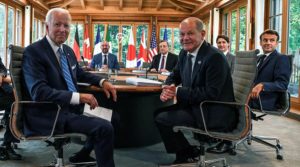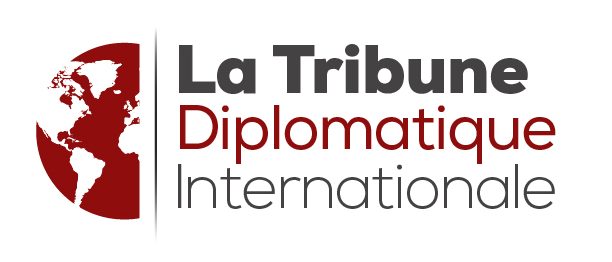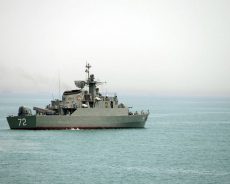
Mohsen Abdelmoumen: You are an expert in geostrategy, what is your view on the current conflict in Ukraine?
Gordon M. Hahn: The war in Ukraine is best called the Russian-NATO Ukrainian war. It is a war over whether or not NATO will be allowed to expand to Ukraine and elsewhere along Russia’s borders, but mostly over Ukraine’s potential membership in NATO. NATO expansion drove democracy-promotion efforts in Ukraine and elsewhere, the 2004 Orange Revolution, and the February 2014 Maidan overthrow of the Yanukovych government. For Russian national security, Ukraine is Geostrategically pivotal. If there is a hostile regime in Kiev backed by the West militarily, then Russia has no virtually no national security other than the resort to nuclear weapons. Western military assistance makes Ukraine a de facto NATO member on Russia’s border and emboldens Kiev to favor a military solution over a negotiated one to the Donbass conflict it started as well as to seek a return of Crimea. The widespread Western belief that Putin is politically weak and Russians are bursting to establish a democratic republic and free market economy (things the West itself is abandoning gradually in favor of the Great Reset, Wokism, and AI) led to a lack of caution in dealing with Putin, thinking he would balk at a war or be overthrown if he started one. This is precisely the situation with which the West confronted Russia no later than the Maidan coup and certainly by January 2022; hence, Putin’s decision to invade.
You wrote the very interesting book « Russia’s Islamic Threat » which has been listed as an outstanding academic title in Choice which lists Current Reviews for University Libraries. In your opinion, by betting on the destabilization of Russia, aren’t the Westerners playing a dangerous game that can benefit the various jihadist groups in the region?
My book “Russia’s Islamic Threat” hypothesized that a global jihadi organization was emerging in Russia’s North Caucasus under the influence of Al Qaida (AQ) in the form of the then titled ‘Chechen Republic of Ichkeriya’ (ChRI). This was much more of a global jihadi-AQ project than one developed by the West, though the latter may have played a peripheral role in the ChRI’s radicalization leading to its transformation into the full-blown jihadi network called the Imarat Kavkaz (IK) or Caucasus Emirate. The IK was an ally of AQ but soon split over the question of allegiance to ISIS, with the majority of IK mujahedin forming ISIS’s Russia-based affiliate. It still seems unlikely that the West under its new ‘decolonization’ policy targeting Russia will be able to separate the North Caucasus from Russia, no less regions such as Tatarstan or Bashkortostan. If this sort of separatism did succeed on the basis of a jihadist ideology, then the blowback would hit Europe and Central Asia. So indeed, this is a potentially dangerous game, not to mention the potential for a nuclear, biological, or chemical civil war in Russia and its implications for Western security.
In your opinion, who would benefit from the fall of Russia?
Given the security risks of a Russian dissolution noted above, there might be no beneficiaries and quite a few victims in the event. Certainly, the West, China, and perhaps others such as Kazakhstan and India could benefit from territorial acquisition or greater access to Russian territory’s natural resources.
With the amount of weapons that the West has sent to the Ukrainian government, is there not a risk that these weapons will fall into the hands of various jihadist groups?
There is indeed some risk that weapons sold to Ukraine will end up in jihadis’ hands. First, Ukrainian weapons have long been on the black market. Second, reports of corruption and re-sale of Western weapons sent since the war began are legion. Third, there are Chechen elements fighting on both sides in the war, and those on the Ukrainian side might be interested in sending weapons to ISIS allies in the North Caucasus or Turkey.
In your last article “The Russian Winter Offensive”, you talked about the « shock and awe » strategy that begins with winter. What can you tell us about this new step of the Russian offensive planned for this winter?
A Russian offensive this winter is most likely because by January all the 300,000 mobilized recruits plus a wave of another 50,000 volunteers will be ready for combat on the front. The recent strategy of destroying Ukraine’s electricity, fuel, and rail transportation infrastructure is setting the stage for the offensive by degrading these infrastructures making it difficult for Ukraine to move and supply its forces. This degrading will peak when those new forces are ready. Then Moscow will have at least four directions from which to choose for conducting offensives: (1) from the east in Donetsk and Luhansk (Bakhmut-Avdiivka) driving west; (2) from western Belarus driving south to cut off the transport routes through which Western weapons and volunteers arrive in Ukraine; (3) a push south from Belarus to threaten or take Kiev and force the government to flee and even seize the capitol, thought this would require a force of 300,000 by itself, limiting options elsewhere; and (4) a drive north from Kherson towards Dnepro, which could meet up with forces driving west from Donetsk. Traditional military science says taking the enemy’s capitol should be a if not the primary strategic goal of any operation, and an offensive on Kiev would force redeployment of Ukrainian forces from other fronts opening up opportunities on those fronts for the Russians. But this is an era of satellite and drone warfare. NATO keeps Ukraine in the know on all Russian troop movements and other matters. So Moscow may be forced to attack on all of these fronts as it is all now along the southeastern fronts from northern Luhansk to Zaporozhe but more robustly thanks to the coming reinforcements. Then if progress is enough to severely weaken the Ukrainian army a final push on Kiev could come.
This may be the plan Moscow ill eventually settle upon. With Ukrainian energy and transport debilitated, this strategy could force Zelenskiy to enter ceasefire or peace talks or others to remove him from power in order to begin negotiations.
Isn’t the defeat of the Ukrainian army a defeat for NATO against Russia?
It would be a political defeat but obviously not a military defeat. NATO forces are not directly involved on the ground officially or in any great numbers unofficially (Polish and Rumanian soldiers serving as ‘volunteers’). NATO equipment is being used but it is second and third tier stuff and used by Ukrainians unfamiliar with them. If NATO were directly involved on the ground, the war we see now would be a picnic by comparison. But if Russia wins, it will be a catastrophic political defeat for the US, Europe and NATO and a boon to Russia, China, and the alternative order they are beginning to construct. Other states will join their emerging system in greater numbers and speed than currently, though the growing participation of India and Turkey indicates where things are going. And NATO expansion will difficult to do anywhere on post-Soviet lands from then forward. If Russia loses the war and Ukraine becomes a NATO member, then the dynamic will be the very reverse. The Putin regime will be under constant threat of destabilization, NATO expansion can continue in places like Georgia and Moldova (despite the latter’s constitutional mandate of neutrality), and the Sino-Russian Eurasian and global network of international organizations (BRICS, SCO, the EEU) will be challenged.
Is it not in the interest of the Westerners who wanted this war to push Ukraine to negotiate?
Right now, it is not. Who in the West wanted this war? The US, NATO, and Western arms dealers. The Biden administration benefits by the war, it thinks, by deploying the Russian bogey man to maintain support among its base and the hope of peeling off moderate Republican security hawks during the election campaign. It can boost defense spending to maintain support of the defense industry. The CIA, FBI and other intel and security agencies also benefit in terms of budget items and institutional profile. NATO supports the war for now because it can use the war to study Russian warfighting and weaponry performance and consolidate its members and other support in the West around the ‘Russian threat’ it itself created. The interest of Western arms dealers needs little elaboration.
The American Chief of Staff Mark Milley has mentioned the possibility of negotiations, but we note that some Western politicians, such as Victoria Nuland or Antony Blinken, want to continue the war. Isn’t there a disagreement between the politicians and the military?
There is a disagreement between factions, but they are not strictly defined by the military-civilian divide. There is no evidence that Defense Secretary Austin, for example, supports negotiations, and it appears that CIA Director Nicholas Burns, who always questioned the advisability of NATO expansion, and National Security Advisor Jake Sullivan favor negotiations. The political and other risks that come with war almost always spark political division and polarization in governments of all types: semi-republican (US), authoritarian (Russia, China), even totalitarian (USSR and pre-Deng China). We have seen soft authoritarian Ukraine and mid-level authoritarian Russia experience internal disagreements over the war.
How far can the West continue to support Kiev?
Until Ukraine is seen as losing the war in a major way with no prospect of rebounding without prohibitively large Western assistance to bolster, the state, regime, and military. This could happen next year.
Hasn’t Zelensky become a burden for everyone? Hasn’t he become an embarrassment, including to the Westerners who support him?
Zelenskiy has both weaknesses and strengths, the latter of which make or can make him a burden to his allies at home and abroad. It must be said that Zelenskiy’s decision to remain in Kiev when Russian forces began to move on Kiev from Belarus in February speaks of a certain courage – perhaps of the kind found in the aphorism ‘there is a fine line between bravery and stupidity’ – and this has certainly rallied many in Ukrainian government and society to his side, when at the war’s beginning his popularity ratings were disastrous. He is also an effective post-modernist PR conman. But in the desperation of the war’s difficulties, he has repeatedly overreached in producing false propaganda stories, for which he finally was exposed during the recent Ukrainian missile hit on Poland. On the other hand, he is still being protected by growing Western media censorship and propaganda of the authoritarian kind, which have refused to report on Kiev’s numerous fake ‘Russian atrocities’ and the like. Chief of the Ukrainian General Staff may be running out of patience, but we simply cannot be sure just how tense the Zelenskiy-Zalyuzhniy relationship is. Zelenskiy continues to make himself useful to Ukraine’s powerful neofascist/ultranationalist element, cracking down on Russian language, the former Russian Orthodox Church affiliate in Ukraine, and pro-Russian media. For Westerners, Zelenskiy is still a beneficiary of the West’s propaganda, which even its propagandists have imbibed and are invested in. Threats to his continuing support are: more exposed lies like the missile hit on Poland episode; massive corruption that is impinging on the effectiveness of Western military assistance; and growing military failure and general staff and/or common soldier dissent in Ukraine regarding the war. This year we are likely to see at home and abroad a serious decline in the popularity of Time’s and Financial Times’ 2022 ‘Man of the Year’.
Interview realized by Mohsen Abdelmoumen
Who is Gordon M. Hahn?
Gordon M. Hahn, Ph.D., is an American analyst specializing in Islam and politics in Russia and Eurasia, international relations in Eurasia, and terrorism in Eurasia. He is a senior research fellow at the Center for Terrorism and Intelligence Studies (CETIS) at Akribis Group in San Jose, California, an expert analyst at Corr. Analytics, and an analyst at Geostrategic Forecasting Corporation in Chicago.
Dr. Hahn is the author of several books including the recent “Russian Tselostnost : Wholeness in Russian Thought, Culture, History, and Politics” (Europe Books, 2022), but also “The Russian Dilemma : Security, Vigilance, and Relations with the West from Ivan III to Putin” (McFarland, 2021) ; “Ukraine Over the Edge : Russia, the West, and the « New Cold War »” (McFarland, 2018) ; “The Caucasus Emirate Mujahedin : Global Jihadism in Russia’s North Caucasus and Beyond” (McFarland, 2014), “Russia’s Islamic Threat” (Yale University Press, 2007) which has been listed as an « outstanding academic title » in Choice: Current Reviews for Academic Libraries, and “Russia’s Revolution From Above : Reform, Transition and Revolution in the Fall of the Soviet Communist Regime, 1985-2000” (Transaction, 2002).
He has also published numerous think tank reports, academic articles, analyses, and commentaries in the English and Russian language media. He has taught at Boston, American, Stanford, San Jose State, and San Francisco State universities, and was a Fulbright scholar at St. Petersburg State University in Russia. He has been a senior fellow and visiting scholar at the Center for Strategic and International Studies, the Kennan Institute in Washington DC, and the Hoover Institution.
His official website: https://gordonhahn.com/



